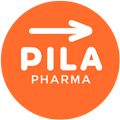PILA PHARMA announces plans for an IPO in Q2-2021
Malmö, Sweden, 17h November 2020
Download the press release as PDF here
PILA PHARMA AB, a Swedish biotech company, is pleased to announce the decision to list the company.
The Initial Public Offering (IPO), aiming for listing of the company’s shares on one of the unregulated stock exchanges in Sweden, is targeted for Q2-2021.
To facilitate the IPO process, Göteborg Corporate Finance (GCF) has been selected as the capital finance partner.
“I am thrilled that we have finally made the decision to list PILA PHARMA” says Dorte X. Gram, founder and Chairman of the Board. “This will give us a solid platform to continue the development of XEN-D0501 as a new type of diabetes medication”.
“The cost of developing new drugs increases significantly around phase 2, so listing PILA PHARMA at this point in time is a natural step towards successful financing expresses CFO Lars B. Rasmussen. “I am very pleased with the selection of GCF as our capital finance partner for the IPO process and at the same time highly confident that GCF’s investor network reach, and their IPO experience will complement our pharma competences very well to make a successful case”.
Tyge Korsgaard, Director of the Board completes: “I have previously participated in the listing of two Danish biotech companies Genmab A/S (current market cap of approx. SEK 210 billion) and Zealand Pharma A/S (current market cap of approx. SEK 13 billion). Now it is PILA PHARMA’s turn. I really look forward to participate in the listing of PILA PHARMA, which I find has great untapped potential”.
For further information, please contact:
Dorte X. Gram
Chairman of the Board
M: +46 (0)73 903 6969
E: dxg@pilapharma.com
About PILA PHARMA
PILA PHARMA is a Swedish biotech company in the diabetes segment based in Malmö. The aim of the company is to develop a novel and superior tablet based treatment for type 2 diabetes. The company owns both use patents for treating diabetes and obesity with TRPV1 antagonists, and the intellectual property rights for the mid stage clinical development candidate XEN-D0501.
About XEN-D0501 and TRPV1 antagonists
XEN-D0501 is a highly selective and very potent small molecule TRPV1 antagonist, previously in development by Bayer Healthcare and Xention/ Ario Pharma. The TRPV1 target (also called the “chili-receptor”) has demonstrated applications across pain and inflammatory diseases and potentially plays a role in diabetes as well. XEN-D0501 was acquired by PILA PHARMA in March 2016, due to its very good safety and tolerability as compared to other clinical TRPV1-antagonist development candidates. TRPV1 antagonists as a drug-class has previously been associated with severe adverse events as fever (hyperthermia). XEN-D0501 has in healthy volunteers been shown to induce a modest temperature increase following the first dose, that fades out during the first 2 weeks of dosing. The maximal tolerable dose in non-diabetic individuals has previously been determined to be 4 milligrams twice daily, a dose level with good safety but no effect in non-diabetic patients with either overactive bladder disease or chronic cough. In November 2018, PILA PHARMA reported the completion of its first clinical trial, PP-CT01, demonstrating good safety of XEN-D0501 at single doses up to 8 milligrams when administered to people with type 2 diabetes. The most recent study results were announced in September 2020. The study (PP-CT02) demonstrated that multiple doses of XEN-D0501 (4 mg twice daily for 28 days) were likewise safe and well-tolerated by people with type 2 diabetes and also – with statistical significance versus placebo – that XEN-D0501 enhances the endogenous insulin response to oral glucose, thus demonstrating proof of principle.
About diabetes
Diabetes is a world-wide pandemic with a staggering prevalence of 463 million diabetics corresponding to approximately 8-10% of the population. Approximately 90 % of all diabetics suffer from type 2 diabetes, whilst approximately 10% suffers from type 1 diabetes. The disease can lead to cardiovascular disease resulting in reduction of quality of life for the patient, increased risk of death and high health care expenses. Despite recent therapeutic advances, large and growing unmet needs exist both from an efficacy, safety, adherence, accessibility and affordability perspective.

